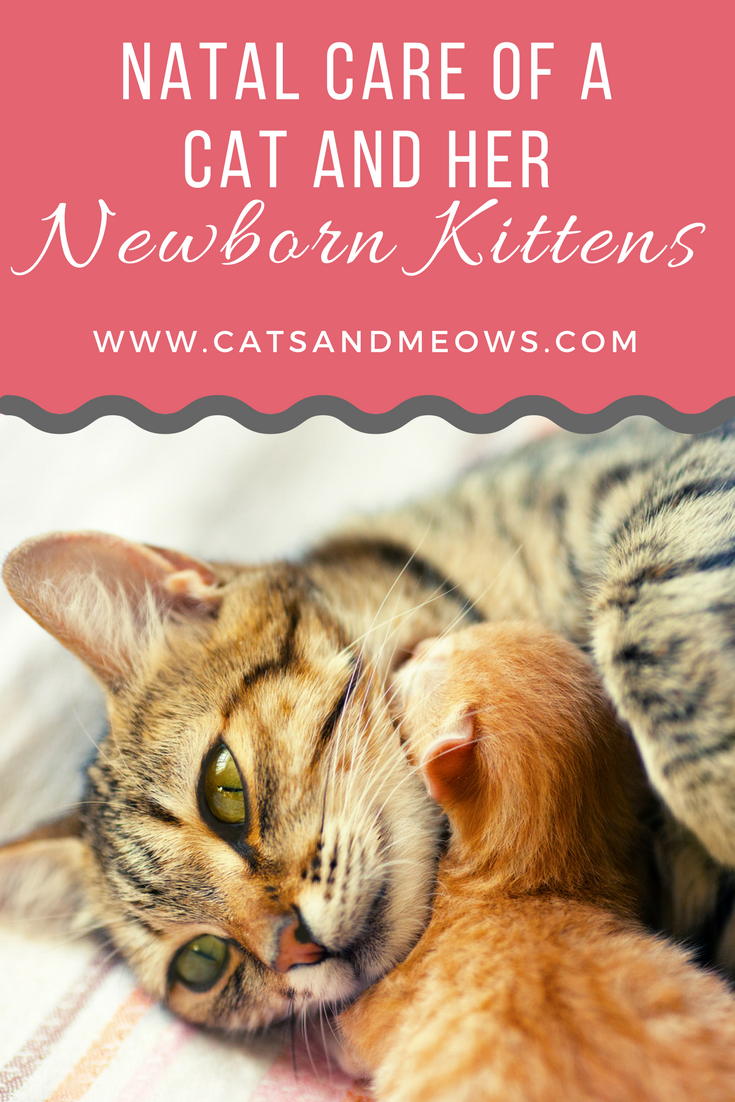Post-Natal Care of a Cat and Her Newborn Kittens
 So, your cat has just given birth to a litter of teeny tiny mini-me’s: do you know what to do next? If your fur baby has just become a mom herself, here are a few tips to ensure that her little family gets the best possible start in life.
So, your cat has just given birth to a litter of teeny tiny mini-me’s: do you know what to do next? If your fur baby has just become a mom herself, here are a few tips to ensure that her little family gets the best possible start in life.
The first three weeks after birth form a crucial developmental window. The babies will develop quickly and momma cat is at risk for the most serious postpartum problems.
Once the first week has passed, take your new little family to the vet for a wellness check. Mom should be vaccinated if hasn’t already been, and roundworm medication should be given (it will protect both mom and her kittens).
Be sure to provide a clean, quiet area for your cats, preferably their own room. A clean, spacious cardboard box filled with layers of clean towels or blankets makes the perfect shelter.
Depending on your climate, you’ll need to ensure that they have sufficient heat, since chilling is a potential newborn danger.
Take your visiting cues from “the boss.” Momma cat knows best, and she’ll let you know if your attention is welcome or unwarranted. At the very least make sure that the babies are nursing regularly, (approximately every two-three hours), appear healthy, and sleep tons!
Move the mother’s food and water bowls, and litter box, into the room and provide her with a high quality canned food, along with Kitten Milk Replacement.
Kitten eyes should open by the third or fourth day, and within seven to 14 days they should be crawling. At the two week mark you can expect them to try standing up. At three weeks and beyond they will start to walk and play.
Related: Why Does Your Cat Meow? 5 Possible Reasons
On a final note, mastitis and endometritis are two serious complications to watch for. With the former, the mammary glands become infected as a result of milk being retained. A mother who refuses to nurse, or swollen, hot, or dark teats are common symptoms. Mastitis is a veterinary emergency, and the kittens may need to be hand-fed until the mother cat
Endometritis, or uterus infection, is another dangerous condition. A foul-smelling discharge, loss of milk production, and fever, are signs that should not be ignored.
Affiliate links included below. Thanks for your support!
These problems are not widespread, and most likely your little brood will thrive as they develop into adoptable kittens. If you are so inclined, the kittens can be adopted out beginning in the second or third months.
Share your thoughts in the Comments section below, on our Facebook Page, Follow Our Twitter Account or Head Over To Our Pinterest Page!
